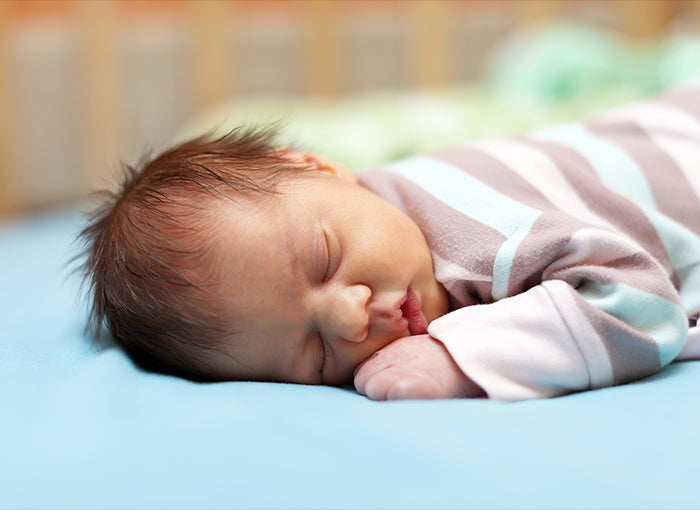Newborns: Sleep Time, Cribs & Crib Safety!
Posted by GWD KIDS

From the time you bring your newborn home, their crib is their entire home. A child's crib plays a fundamental role in their growth and development, especially since babies spend most of their first year sleeping. Apart from being a mere item of furniture in the nursery, a crib is a safe haven - it plants the initial seeds of independence and, most critically, keeps your baby safe and sound.
✨ Importance of sleep in baby development
According to statistics, newborn babies spend up to 70% of their time asleep, sleeping very often during the day, and in shorter time periods.
A huge amount of emotional, physical and mental development happens whilst your baby is asleep. Sleep promotes growth, helps build your baby's immunity and influences critical abilities such as language, attention span, and impulse control.
Now that you know how important sleep is for your growing baby’s brain, you most certainly would want to know how important it is to choose an appropriate crib, and create a peaceful sleeping environment in their nursery.
✨ The Do's & Don'ts of Baby Crib Safety
When planning a nursery, it is vitally important to choose your pieces of furniture keeping in mind your little one. Your baby's crib is the safest place for them to be in. A clear cot, is a safe cot!

✨ The Do's
#1 Place your baby’s crib in the room with you. They can sense you nearby, and you can hear if there are any problems with the baby’s sleep or breathing.
#2 Choose your crib wisely. Check and scrutinize every aspect of the product you choose, from materiality to durability. A good quality crib will have bars no more than 2 and 3/8" apart so that your baby's arms, legs or head is at no risk of getting caught in between.
#3 The crib should contain a firm mattress that fits snugly and is covered with a tightly fitted sheet.
#4 Maximize keeping all additional and unwanted items out of your baby's reach. Be it stuffed toys, blankets or pillows.
#5 Always ensure that your baby's mobile is placed well out of your baby's reach and is tightly fitted onto the crib to avoid any kind of injury.
#6 Ensure that the baby's room or nursery is always at an optimum temperature for safe and sound sleep.
✨ The Don'ts
#1 Don’t use regular blankets for your baby. Opt for a wearable blanket or sleep sack instead. If swaddling, use thinner materials, ensure it’s not too tight, and always monitor your baby to prevent overheating.
#2 Don’t smoke in the room where your baby's crib is placed. To ensure your baby breathes fresh air, place a purifier near the crib
#3 Do not let your baby sleep in your bed (also called co-sleeping or co-bedding) In their initial years, your baby is not strong enough to hold his/her head flat on an adult bed. As a result, your baby is at an increased risk of bending their neck, which can block their windpipe, causing suffocation and injury.
#4 Don’t put your baby to sleep on their sides, as it could cause them to easily roll over. Always place them on their back for safer sleep.

